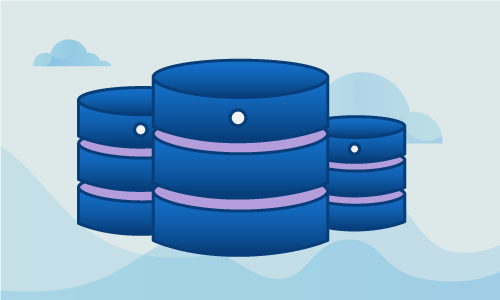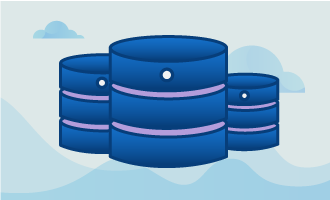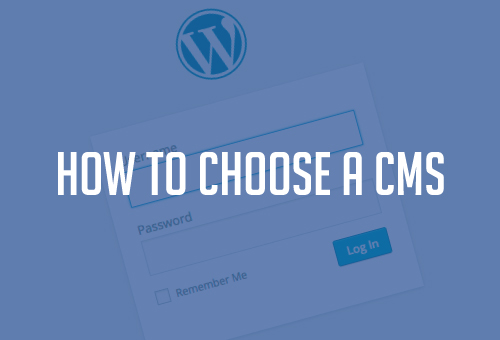What Is a CMS?
According to Wikipedia, “a content management system (CMS) is a computer application that allows publishing, editing and modifying content, organizing, deleting as well as maintenance from a central interface.” Imagine using a File Manager-like interface where the content wouldn’t be files on a hard drive but instead articles published to a blog or a catalog of items for sale in a web store. From the CMS interface, I could create or update an article, start a sale for a series of products, or decide to stop carrying a product line and remove it from the public site.
CMS Advantages vs. Manual Coding
Under the covers, a CMS typically consists of two parts. There is the content management application (CMA), which is the user interface, and the content delivery application (CDA), which updates the website. Make a change in the CMA, and the CDA will notice the change and publish it. The end result is that a nontechnical person can maintain a website without the help of a professional webmaster.
Without a CMS, a nontechnical person might provide the copy for a website, but he or she typically wouldn’t understand how to take that copy and turn it into a web page — with the common template, tracking cookies in place, and the ad network script in place to monetize page views — and then upload it to the right place with all the secondary resources, such as images, included and referenced appropriately. It is certainly possible to code everything by hand, but even a basic CMS will greatly simplify the process of publishing articles to a corporate blog and maintaining a virtual storefront.
Popular CMS Features
When looking for a CMS, I want something easy to administer. If it isn’t easy, I won’t use it, or I’ll reluctantly use it. Beyond ease of use, some other features of interest include the following:
1) Web Analytics
Tracking is key these days. I need to know how people are interacting with my site. Are they leaving in the middle of a sale with a half-full shopping cart? Are they entering the site directly after a gateway I’ve set up to show off our latest product release? Are my search engine optimization (SEO) and social media optimization (SMO) attempts working? Without tracking, there is no way to know. Here, Google Analytics is the most popular resource, although it isn’t the only one.
2) SEO Tools
Any tools that can help create articles that are SEO-friendly, including optimized URLs, added keywords, and accessible content, will help my web pages place better in search engines such as Google and Bing.
3) SMO Integration
Some people might eye social media as more important than search engines. Any tools that offer me the ability to cross-post or share articles as they are written will greatly increase the reach of the articles I publish with minimal effort. Think scheduling here, too, as there are core times I want my content to be published to be seen by the most eyeballs.
How Complicated Is It to Implement?
Some people balk at trying new things. They like their comfort zone and won’t budge from it. Thanks to the simplicity of CMSs, getting started with a CMS is a piece of cake for the average user. As a point of comparison, just look at the sheer number of mommy bloggers out there. In early 2014, the number of WordPress (a popular CMS) bloggers numbered more than 75 million.
Top Five CMSs on the Market
Five popular CMSs are Blogger, Drupal, Sharepoint, Tumblr, and WordPress. Google lets you see how topics are trending over time. Here’s a look at how these five are trending: http://www.google.com/trends/explore#q=blogger,drupal,sharepoint,tumblr,wordpress
1) Blogger
Description: Owned by Google, provides a free service to publish blogs on Google servers via a subdomain of blogger.com.
Pros
- Free
- Template-driven
- Multiple author support
- Easy AdWords integration
Cons
- Google places limitations on resources and could shut your site down if you go against the terms of service
- Limited number of plugins and limitations on plugins
- Forum-based support
2) Drupal
Description: A free and open-source content management system for self-hosted sites.
Pros
- Total control over system, including the publishing interface
- Many contributed modules (plugins), including SEO-specific ones
Cons
- Total control over system. For the less technical, this could be scary.
- Not as easy as WordPress
3) Sharepoint
Description: Owned by Microsoft and part of the Office suite (2007, 2010, 2013); provides a system that goes beyond just blogging. Targets companies in the multiple hundreds to mid-thousands.
Pros
- Highly customizable
- Workflows
- Own security system
- More than just a CMS
- Apps store (plugins) for customization
Cons
- Steep learning curve
- Need to hire someone to set up and manage
4) Tumblr
Description: Owned by Yahoo, offers a microblogging platform to directly share text, photos, videos, etc.
Pros
- Easy to share, post, comment
Cons
Not fully understood/utilized by corporate world
- Limited tools
- Adult content
5) WordPress
Description: WordPress is an open-source blogging platform. WordPress.com is a domain that hosts WordPress blogs. The blogging platform can be installed on your servers to provide a blog you totally control if you don’t want it hosted (and controlled) by WordPress.com.
Pros
- Total control over blog, although it’s not just for blogs
- Huge catalog of plugins to extend features, including SEO-specific ones
- Designers eager to help you create a custom look and feel or sell you one pre-built
Cons
- Total control over blog. For the less technical, this could be scary
- Plugin integration
- Self-hosted
Which platform is right for you? There is no one right answer. It all depends on what you are trying to accomplish. As far as complexity goes, it clearly goes from Tumblr to Blogger to WordPress to Drupal to Sharepoint, but with the added complexity, you get more freedom in what you can do. You can try demos of each CMS and see how much is enough, or more importantly, how comfortable you are with the tools each one offers. Just pick one. Any of them will be better than having none and doing everything by hand. If you later decide to change, there are typically tools (or people) to help you migrate from one to another, should you decide to preserve what has already been created.
Post Excerpt
A content management system or CMS is a means for managing the web content for a site from a common interface. With that in mind, I might use it to manage the articles published on my blog or for the items I want to sell in my webstore. Instead of hand coding styles and relationships, I would use the CMS to connect the content within a site together and make sure they share a common template to keep a consistent user experience. In this article, I’ll help you understand what a CMS is for, what some popular features are, how complicated they are to use, and who some of the market leaders are.
If you end up choosing WordPress, here is an article we wrote on the most popular plugins of WordPress.

 Call us at 1-888-GTCOMM1
Call us at 1-888-GTCOMM1







